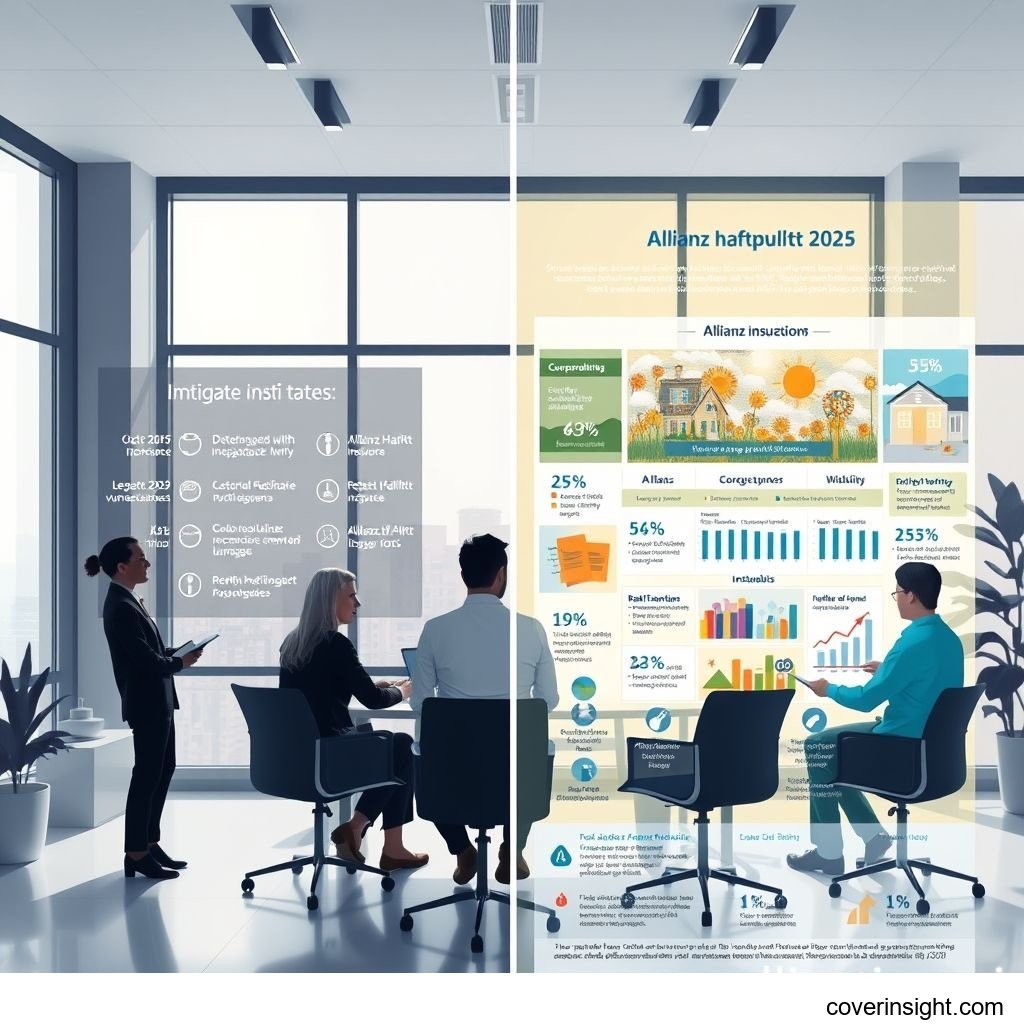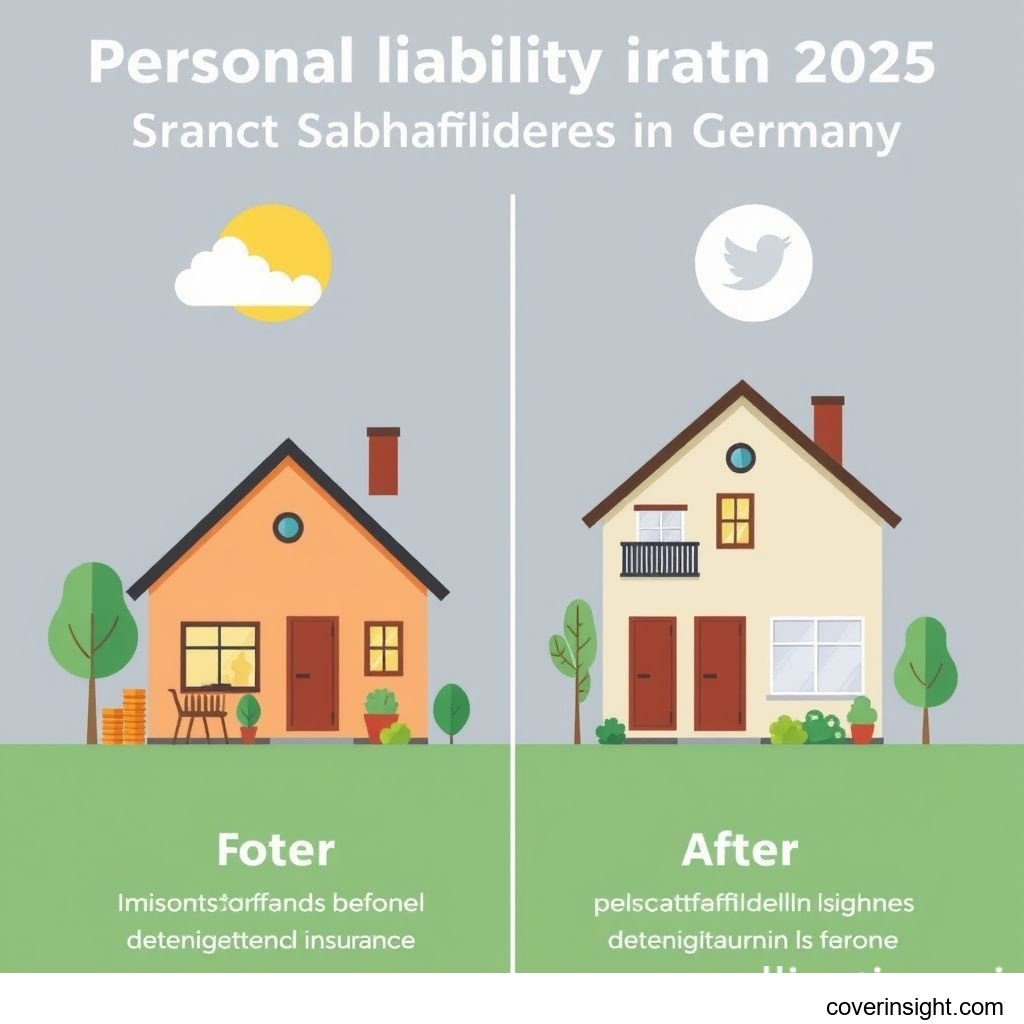Introduction
As we approach 2025, the landscape of personal liability in Germany continues to evolve, making robust insurance coverage more crucial than ever. Among the myriad of options, Allianz stands out as a prominent provider, offering comprehensive solutions designed to protect individuals and families from unexpected financial burdens. A Haftpflicht 2025 policy, especially from a reputable insurer like Allianz, isn't just another bill; it's a fundamental pillar of personal security in a society where even minor accidents can lead to significant costs. This article delves into the specifics of what such a policy offers, particularly concerning "Schutz für Kinder" and coverage for "Mietschäden", ensuring you’re well-informed to make the best decision for your household.
Coverage Details
What’s Included
A well-rounded Haftpflicht policy provides a safety net for damages you inadvertently cause to third parties, covering personal injury, property damage, and financial loss. For families in Germany, the "Schutz für Kinder" aspect is particularly vital. Many policies extend coverage to damages caused by your minor children, even if they are not yet legally liable (under 7 years old, or under 10 for traffic accidents, also known as "deliktsunfähig"). For instance, if your child, in a moment of playful abandon, accidentally breaks a neighbor's valuable garden gnome or scrawls on a public bench, a good Allianz Haftpflicht policy could step in. This provision can be a true "Lebensretter" for parents, as children, by their very nature, can be unpredictable.
Furthermore, "Mietschäden" coverage is a critical component for anyone renting property in Germany. This typically covers damage to the rented living space that is not considered normal wear and tear. This could range from accidentally leaving a tap running and causing water damage to the bathroom floor, to scratching a newly installed parquet floor while moving furniture. Most standard policies cover fixed installations like sinks, doors, windows, and floors. For a deeper dive into optimal protection, consider exploring options like "Allianz Haftpflicht 2025: Optimaler Schutz in DE?".
Beyond these key areas, comprehensive policies also often include coverage for loss of keys (especially important for expensive apartment building locks), damages caused by pets (excluding those covered by specific animal liability insurance like for dogs and horses), and even minor building work you undertake on your property.
Common Exclusions
While Haftpflicht insurance is broad, it's not a catch-all. Understanding common exclusions is key to avoiding surprises. Generally, damages caused intentionally are not covered. Also, damages covered by other specific insurances, such as motor vehicle liability (Kfz-Haftpflicht) for car accidents, professional liability (Berufshaftpflicht) for work-related negligence, or hunting liability, are typically excluded. Damage to borrowed items, though sometimes included via an add-on, is often excluded from basic policies. Furthermore, claims arising from the use of motor vehicles, aircraft, or watercraft are generally outside the scope of a personal liability policy. It's always wise to read the fine print to know precisely where your policy draws the line.
Cost Analysis
Price Factors
The cost of a Haftpflicht policy is influenced by several factors. The "Deckungssumme" (sum insured) is paramount; a higher coverage limit (e.g., 50 million EUR versus 10 million EUR) naturally increases the premium. Given the potential for high costs in personal injury cases, it's often advisable to opt for a generous sum insured. Another significant factor is the "Selbstbeteiligung" (deductible). Choosing a higher deductible means you pay more out-of-pocket for smaller claims, but your annual premium will be lower. The scope of coverage also plays a role: a basic single policy will be cheaper than a family policy that includes partners and children, or one with extensive add-ons like "Forderungsausfalldeckung" (coverage for when someone causes you damage but can't pay). As someone living in DE, I've noticed that regional differences aren't as pronounced as in other countries, but provider competition certainly impacts pricing.
Saving Tips
To keep your premiums in check without compromising essential coverage, consider these tips: First, always compare offers from different providers. Online comparison portals are a great starting point, but don't hesitate to consult with an Allianz advisor directly for tailored advice. Second, consider opting for a policy with a sensible deductible; this can significantly reduce your annual payments. Third, most insurers offer discounts for annual payments compared to monthly or quarterly installments. Fourth, if you already have other policies with Allianz, inquire about potential bundle discounts. And finally, review your policy annually to ensure it still meets your needs and to cut out any unnecessary add-ons you might have picked up over time. More general tips can often be found on "Insurance Resources Global".
FAQs
How much does Allianz Haftpflicht cost? The cost varies widely based on individual circumstances, chosen coverage limits, deductibles, and whether it's a single or family policy. A basic family policy with a high coverage limit might range from €60 to €150 annually.
What affects premiums? Key factors include the sum insured, the deductible, the number of people covered (single vs. family), and specific add-ons like coverage for minor children's "Deliktsunfähigkeit" or extended "Mietschäden" clauses.
Is Haftpflicht mandatory in Germany? No, private Haftpflichtversicherung is not legally mandatory in Germany, unlike car insurance. However, it is overwhelmingly recommended by financial experts and consumer protection agencies due to the potentially devastating financial consequences of liability claims. According to the GDV - German Insurance Association, private liability insurance is considered one of the most important voluntary insurances, with a very high penetration rate among German households, underscoring its perceived necessity.
How to choose the right Haftpflicht? Focus on a high sum insured (at least 10-50 million EUR), comprehensive "Schutz für Kinder" including "Deliktsunfähigkeit" coverage, and "Mietschäden" protection. Compare offers, read reviews, and assess your personal risk profile. For detailed guidance, see "DE Insurance Home".
Consequences of no coverage? Without Haftpflicht coverage, you are personally liable for any damages you cause, potentially with your entire private assets, including future earnings. This means even a minor incident, like a bicycle accident causing injury, could lead to lifelong debt. A real-world example from a report by the BaFin - Federal Financial Supervisory Authority highlighted a case where a young person, without liability insurance, accidentally caused serious injury to another individual. The resulting medical bills, rehabilitation costs, and lifelong care expenses amounted to several million Euros, leaving the uninsured individual facing financial ruin. It truly underscores the German saying, "Wer den Schaden hat, braucht für den Spott nicht zu sorgen" – if you have the damage, you don't need to worry about the ridicule, but rather the immense financial burden.
Author Insight & Experience
Based on my experience navigating the German insurance landscape for years, the private Haftpflichtversicherung is truly the cornerstone of personal financial security here. It’s one of those things you hope you never need, but when an unforeseen event occurs – be it a child's innocent mishap or an accidental spill in a rented apartment – the peace of mind it provides is invaluable. As someone living in DE, I've seen firsthand how a small, annual investment in a good policy can prevent a minor incident from snowballing into a personal financial catastrophe. It’s not just about covering costs; it's about protecting your entire future from unforeseen liabilities, allowing you to breathe a little easier in a country that values personal responsibility so highly.








Comments